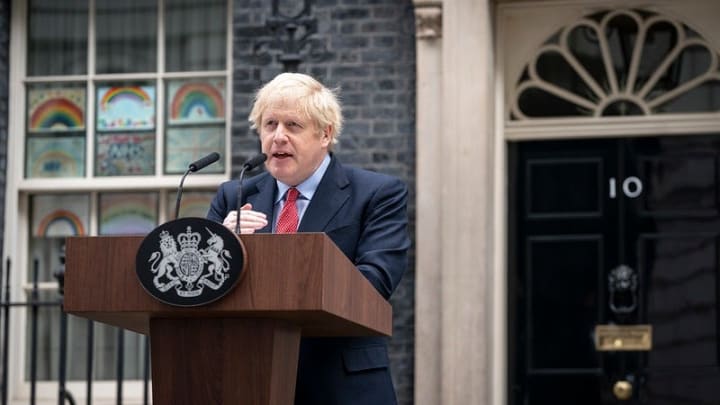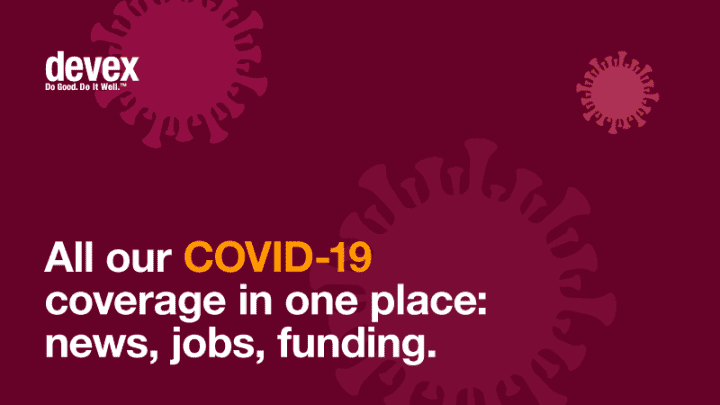
The U.K. government’s decision to vaccinate the entirety of its own population against the coronavirus before donating any leftover vaccines to lower-income countries undermines its claims to leadership on fighting the pandemic, according to global health experts and campaigners.
The United Kingdom, with a population of 67 million, has ordered around 407 million vaccines, and 16.4 million people in the country have received their first shot. Meanwhile, 130 countries have not yet had a single dose, according to António Guterres, secretary-general of the United Nations.
Prime Minister Boris Johnson told leaders of the G-7 group of nations Friday that the U.K. will donate the majority of its future surplus vaccines to the COVAX platform for global vaccine distribution. The country has already donated £548 million to the mechanism.
James Cleverly, a minister at the Foreign, Commonwealth & Development Office, told the BBC, “We’re not really able to give with certainty either a time scale or indeed even numbers involved,” adding there were “many variables” to consider. Cleverly said the U.K. government's commitment is “really clear: Our first duty is to protect our own people.”
But this perspective was not shared by some global health experts and campaigners.
“From a global health perspective, it's the wrong decision. And I think we have a moral duty, [as] global health is based around equity,” said Clare Wenham, a professor of global health policy at the London School of Economics.
“The fact there are health care workers in the world who are putting themselves at risk to just do their jobs at the moment while [U.K. government officials] say they are going to roll out [to] all 40-year-olds and above in the next month — it sits really uneasily with me,” she added.
Wenham said until there are details on how many excess doses are committed to COVAX, “I don't think the U.K. can really claim leadership.” She pointed to Norway — which is donating one dose internationally for every jab given within its borders — as an example of a country that is showing “leadership.”
Rob Yates, director of the global health program at Chatham House, said it was “not right that young adults in the U.K. are going to be vaccinated before health workers and elderly people in other countries,” adding that “it’s inefficient and it’s inequitable.”
COVID-19 vaccine equitableness should be the top priority for the G-7 and G-20 groups of nations, Yates said. “Vaccines are the way out of this. They are as close to magic bullets as we’ve got,” he added.
Roz Scourse, policy adviser at Médecins Sans Frontières’ Access Campaign, said the approach is “indefensible and will result in more deaths globally and a prolonging of the pandemic.”
She advocated increasing supplies of vaccines everywhere by “investing in technology transfer from pharmaceutical companies to manufacturers, including in low- and middle-income countries, and overcoming intellectual property barriers to ensure that we can scale up production as quickly as possible.”
Jeremy Farrar, director at the Wellcome Trust and a member of the Scientific Advisory Group for Emergencies that is advising the U.K. government, is also supportive of donating British vaccines to lower-income countries as soon as the most vulnerable in the U.K. are vaccinated, according to The BMJ. The move would be “enlightened self-interest, as well as the right ethical thing to do,” he told the outlet.
This view was not universal among global health experts, however. “Given the disease has become endemic in the U.K., redirecting vaccines before finishing the job off ... in the country is probably not that wise. I cannot think of any country who would do this,” one expert told Devex, speaking anonymously because they were not authorized to talk to the media. “Committing to donate the surplus is good enough for me,” the source added.





